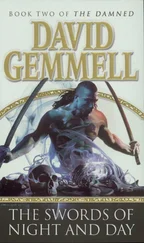David Gemmell - Lord of the Silver Bow
Здесь есть возможность читать онлайн «David Gemmell - Lord of the Silver Bow» весь текст электронной книги совершенно бесплатно (целиком полную версию без сокращений). В некоторых случаях можно слушать аудио, скачать через торрент в формате fb2 и присутствует краткое содержание. Жанр: Фэнтези, на английском языке. Описание произведения, (предисловие) а так же отзывы посетителей доступны на портале библиотеки ЛибКат.
- Название:Lord of the Silver Bow
- Автор:
- Жанр:
- Год:неизвестен
- ISBN:нет данных
- Рейтинг книги:4 / 5. Голосов: 1
-
Избранное:Добавить в избранное
- Отзывы:
-
Ваша оценка:
- 80
- 1
- 2
- 3
- 4
- 5
Lord of the Silver Bow: краткое содержание, описание и аннотация
Предлагаем к чтению аннотацию, описание, краткое содержание или предисловие (зависит от того, что написал сам автор книги «Lord of the Silver Bow»). Если вы не нашли необходимую информацию о книге — напишите в комментариях, мы постараемся отыскать её.
Lord of the Silver Bow — читать онлайн бесплатно полную книгу (весь текст) целиком
Ниже представлен текст книги, разбитый по страницам. Система сохранения места последней прочитанной страницы, позволяет с удобством читать онлайн бесплатно книгу «Lord of the Silver Bow», без необходимости каждый раз заново искать на чём Вы остановились. Поставьте закладку, и сможете в любой момент перейти на страницу, на которой закончили чтение.
Интервал:
Закладка:
The queen looked frightened and began to stammer an apology. Odysseus saw the boy’s expression change, then he pulled away from his mother and said: ‘I’m going to build the biggest ship in the world when I’m older. I am to be a great hero. The gods told mother.’
A pretty frown creased the woman’s brow. She knelt before her son and embraced him again as Odysseus had seen her do on the balcony. She looked into the boy’s eyes as if searching for something there. Odysseus was impressed with the lad.
He was very young, and yet he had sensed his mother’s distress, and had spoken to distract his father’s anger.
‘I know the hearts of men and heroes, boy,’ he said, ‘and I think your mother is right.’
‘Go now,’ said the king, and flicked his fingers at mother and child, as if dismissing servants.
In the three days the Penelope spent in Dardania the child had followed Odysseus around like an exuberant shadow. Odysseus tolerated his company. The boy was sharp, intelligent, curious about the world around him, friendly to all comers, yet reserving an independence of thought the trader found unusual. He was fascinated by ships and he extracted a promise from Odysseus to return to Dardania one day and take him on a voyage on the Penelope. The trader had no intention of keeping his word, but it satisfied the boy, who stood on the beach on the last day waving the trading ship goodbye until it disappeared over the horizon. That same summer Anchises’ wife died, in a mysterious fall from a cliff. Sailors gossiped about the tragedy. One story had Anchises, known to be a cold-hearted king, hurling his wife to her death. Others said she killed herself after years of suffering at Anchises’ hands. A few told more elaborate tales, saying that the queen had been possessed by Aphrodite. Odysseus dismissed that one out of hand. The idea of the Goddess of Love falling for a dry, dull brigand like Anchises was laughable. No, he had seen the queen’s eyes. She had been swallowing opiates. Many highborn women belonged to mysterious sects, taking part in secret revels. When young – around twelve – Odysseus had risked execution in order to spy on one such gathering in Ithaka. The women there had behaved with glorious abandon, dancing and singing, and flinging their clothes to the ground. At one point a small goat had been brought into the clearing. The women had fallen upon it with knives, hacking it to pieces, then smearing themselves with its blood. Odysseus had been shocked and terrified, and had crept away.
Anchises’ wife was said to be a priestess of Dionysus, and in that role would have experienced no difficulty in acquiring narcotics. They had undoubtedly unhinged her.
Odysseus stopped in Dardania several times over the following seven years, but they were overnight rests only. He saw nothing of the king or the boy and had no interest in them, until one day on the isle of Lesbos he got into conversation with a Kretan trader who had recently sailed to the Dardanian coast. He told Odysseus the king had married again.
‘A dull and unpleasant man,’ Odysseus said musingly, ‘yet I suppose even a cold fish like him must have a wife.’
‘Yes,’ said the Kretan, ‘and the new queen has given birth to a son and heir.’ ‘A son?’ Odysseus remembered the small black-haired boy on the beach waving as if his arm would fall off. ‘He has a son. Aeneas. I had not heard he was dead.’ ‘As good as,’ replied the Kretan. ‘Almost a man and yet frightened of everything, they say. He stays in his room all day. The king has no time for him. As I wouldn’t,’ he concluded.
Odysseus had no reason to return to Dardania, but questions about the boy had lodged in his mind from that moment. He could not shake them free, and found himself, a month later, walking the steep path again to seek audience with Anchises. This time his reception at the gates was hostile, and he was left kicking his heels for several hours outside the king’s megaron. He was fighting mad by the time Anchises deigned to receive him. Quelling his anger with difficulty, he accepted the wine cup the king offered and enquired after Aeneas. The king’s stern face darkened. His eyes turned away. ‘You are here to sell me something, no doubt, and I am in need of a supply of tin.’ After lengthy dickering, they reached agreement. Odysseus returned to the Penelope with the intention of leaving at dawn, but was surprised to get a late-night request from the king to see him again.
The megaron was icy, almost in darkness, lit by the light of a single fire, and Anchises virtually invisible in the shadows of his great carved chair. He gestured Odysseus to a seat and offered him a wine cup. The wine was warmed but the trader shivered and pulled his woollen robe closer round him.
‘His mother killed herself,’ Anchises said suddenly. ‘The boy has not been the same since. The stupid woman told him she was the goddess Aphrodite, and that she was going to fly back to Olympos. Then she leapt from the cliff. He saw her and tried to follow, but I grabbed him. He refused to believe she was insane. So I took him to the body, and he saw the ruins of her beauty, broken bones jutting from her flesh. He has been… useless to me since. He is frightened of everything. He speaks to nobody and goes nowhere. He will not ride a horse, nor dive or swim in the bay. So I have a proposition for you.’
Odysseus raised his eyebrows in question.
‘He is fifteen now. Take him with you,’ said the king.
‘I am in no need of crew. Especially cowards.’
Anchises’ eyes narrowed, but he swallowed his anger. ‘I will see you are well recompensed.’
‘You will pay for his keep and for the extreme inconvenience of having such a milksop aboard my ship?’
‘Yes, yes,’ Anchises said impatiently. ‘I will make it worth your while.’
‘The Great Green is a dangerous place, King. Your son might not survive the experience.’
Anchises leaned towards him and Odysseus saw his eyes glitter in the firelight.
‘That thought is in my mind. I have another son now. Diomedes. He is everything Aeneas will never be. He is fearless and bright and born to be king. Now, should a tragedy occur while you are at sea I will reward you richly, in order that you might organize a suitable funeral. Do we understand one another?’
From a table at his side he took a cloth bundle and thrust it at Odysseus. The trader opened it and found a wondrous belt made of fine leather and gold rings, encrusted with amber and carnelian, and a curved dagger inlaid with ivory. He examined them critically. ‘This is a good piece,’ he said grudgingly, drawing the dagger.
‘And we have an understanding?’ the king pressed.
‘You want me to take your son and… make a man of him,’ said Odysseus, enjoying the spasm of irritation that creased the king’s features. ‘In order to succeed he must, of course, risk many perils. Danger is the seed from which courage grows.’
‘Exactly. Many perils,’ the king agreed.
‘I shall speak to the boy tomorrow.’
Odysseus had returned to the Penelope with his booty, and had thought long about the king’s request. The man wanted his own son murdered, and Odysseus loathed him for it.
Towards midnight he stripped off his tunic and jumped from the deck of the Penelope into the dark sea below. He swam across the moonlit bay, the cool water helping clear his mind. The vile king had dragged a sensitive child down to see the shattered corpse of his mother. Was it any wonder his heart was scarred?
Odysseus swam to a point below a high ledge on the cliff path. The water was deep here, and there were few rocks. The swim was enjoyable, but he was no nearer a decision when he returned to the Penelope.
Dressed in an old threadbare tunic he met Aeneas in the early morning, in the flower garden at the side of the palace overlooking the sea. When Odysseus last walked in the garden it had been a riot of greenery, grown with much care and attention despite the ever-present winds and the salt air. Since then all effort to keep it flourishing had ceased and the garden was the same as the rest of Anchises’ palace grounds, rock-strewn and barren.
Читать дальшеИнтервал:
Закладка:
Похожие книги на «Lord of the Silver Bow»
Представляем Вашему вниманию похожие книги на «Lord of the Silver Bow» списком для выбора. Мы отобрали схожую по названию и смыслу литературу в надежде предоставить читателям больше вариантов отыскать новые, интересные, ещё непрочитанные произведения.
Обсуждение, отзывы о книге «Lord of the Silver Bow» и просто собственные мнения читателей. Оставьте ваши комментарии, напишите, что Вы думаете о произведении, его смысле или главных героях. Укажите что конкретно понравилось, а что нет, и почему Вы так считаете.












